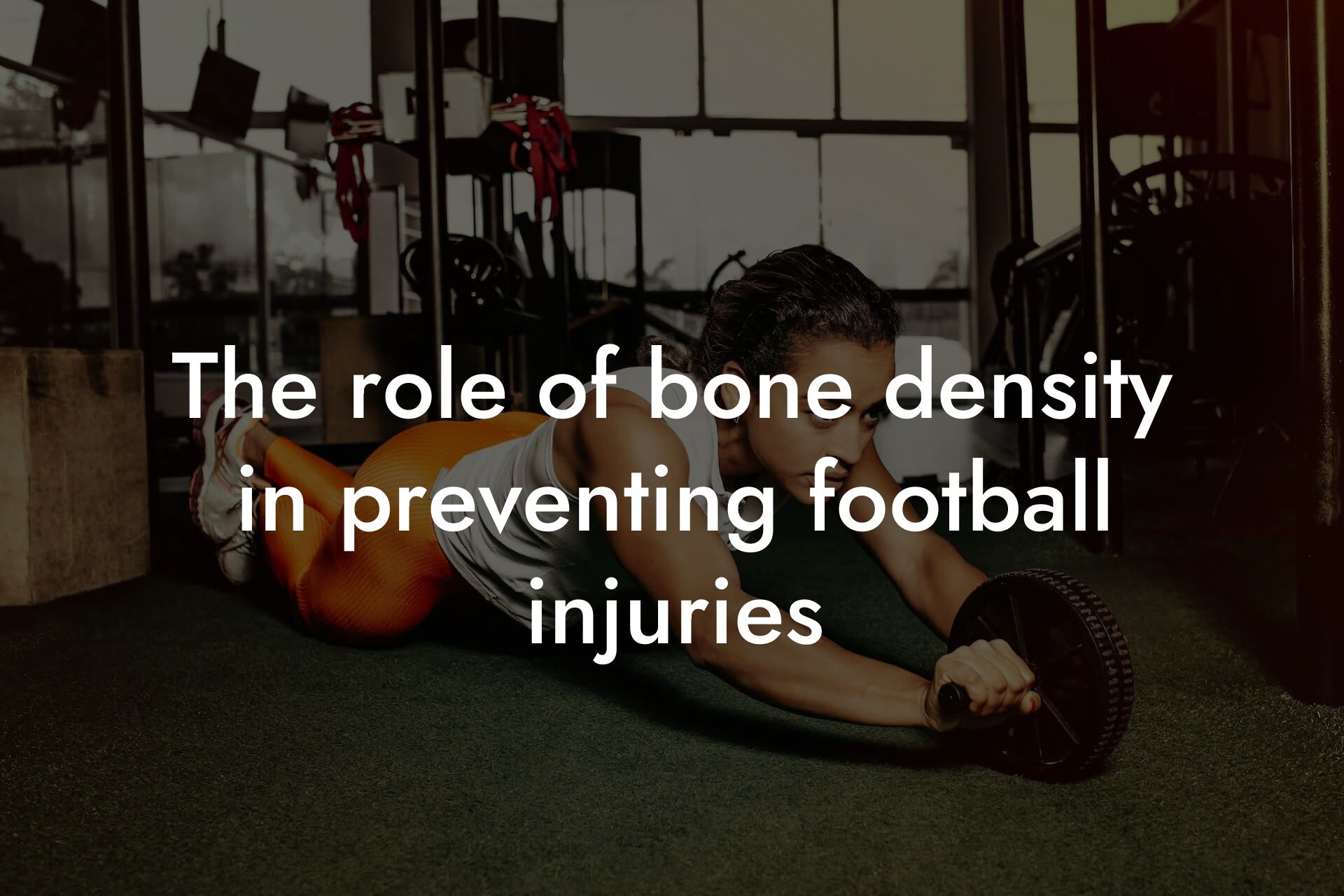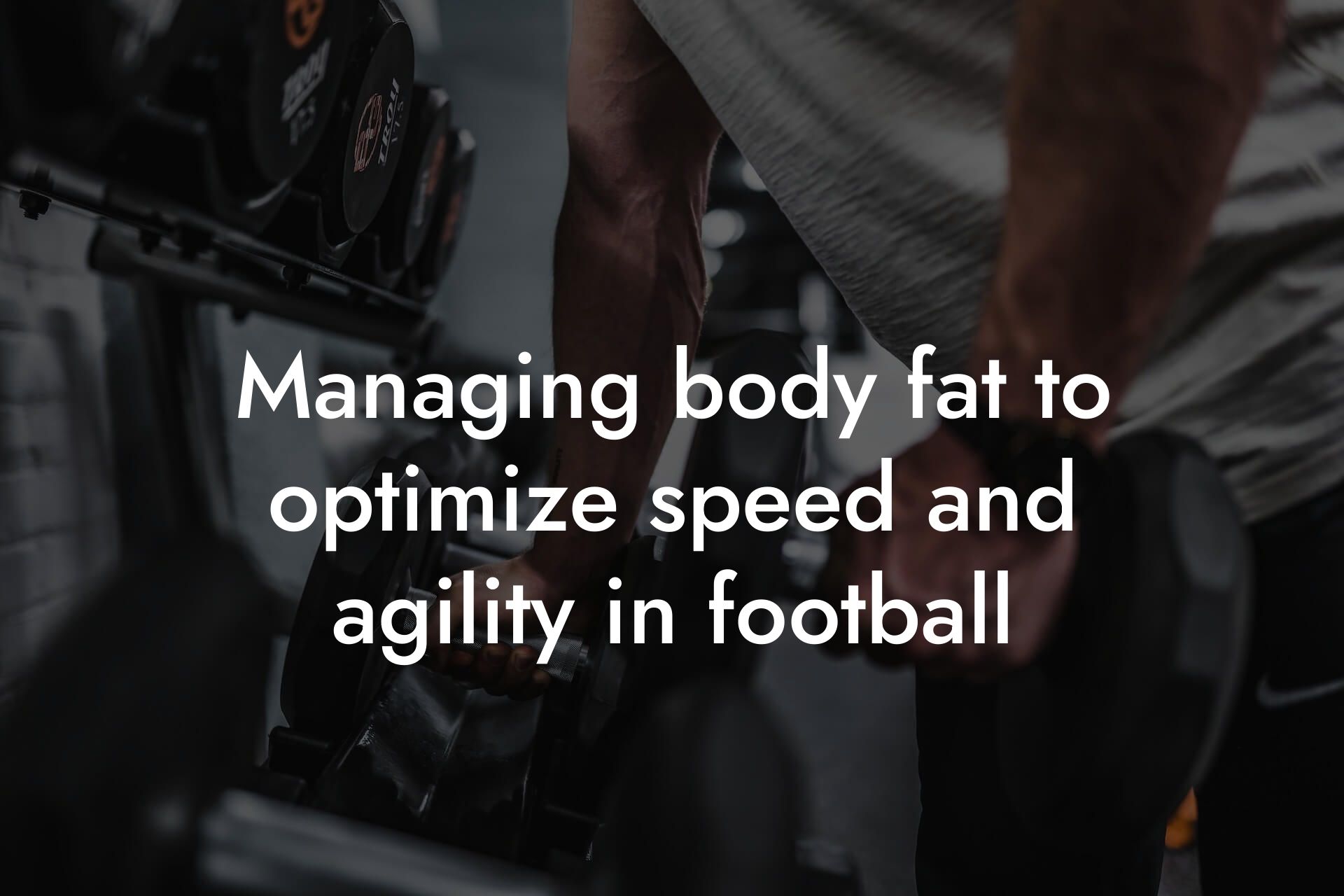As a professional football player, you understand the importance of optimizing your physical performance to gain a competitive edge on the field. With the demands of the sport placing immense stress on your body, it's crucial to have a comprehensive understanding of your physical composition, body fat percentage, and bone density. This is where DEXA (Dual-Energy X-ray Absorptiometry) scans come into play, offering a cutting-edge solution for professional football players to fine-tune their bodies and take their game to the next level.
Table of Contents
What is a DEXA Scan?
A DEXA scan is a non-invasive, low-radiation imaging technology that measures bone density, body composition, and fat distribution. This advanced technology uses X-rays to produce detailed images of the body, providing accurate measurements of bone mineral density, lean mass, and fat mass. In the context of professional football, DEXA scans offer a valuable tool for athletes to monitor their physical progress, identify areas for improvement, and optimize their training regimens.
Benefits of DEXA Scans for Professional Football Players
DEXA scans provide a wealth of benefits for professional football players, including:
• Accurate body fat percentage measurement: DEXA scans offer a precise measurement of body fat percentage, allowing players to monitor their progress and make informed decisions about their diet and training.
• Bone density analysis: By measuring bone mineral density, DEXA scans help identify potential risks for osteoporosis and fractures, enabling players to take proactive steps to maintain optimal bone health.
• Lean mass measurement: DEXA scans provide an accurate measurement of lean mass, helping players optimize their muscle mass and strength.
• Fat distribution analysis: By analyzing fat distribution patterns, DEXA scans help players identify areas where they may need to focus on reducing fat, such as around the midsection.
How DEXA Scans Can Improve Performance
By leveraging the data provided by DEXA scans, professional football players can:
• Optimize their training regimens: With accurate measurements of body composition and bone density, players can tailor their training to focus on specific areas of improvement, such as building lean mass or reducing body fat.
• Enhance their nutrition plans: DEXA scan data helps players make informed decisions about their diet, ensuring they're fueling their bodies with the right nutrients to support optimal performance.
• Reduce the risk of injury: By identifying potential risks for osteoporosis and fractures, players can take proactive steps to maintain optimal bone health, reducing the likelihood of injury and downtime.
DEXA Scans vs. Traditional Measurement Methods
Traditional measurement methods, such as skinfold calipers and bioelectrical impedance analysis (BIA), have limitations when it comes to accuracy and precision. DEXA scans offer a more comprehensive and accurate assessment of body composition and bone density, providing a more detailed understanding of an athlete's physical makeup.
How Often Should Professional Football Players Get a DEXA Scan?
The frequency of DEXA scans depends on individual goals and needs. For professional football players, it's recommended to undergo a DEXA scan:
• At the beginning of the season: To establish a baseline measurement and identify areas for improvement.
• Mid-season: To track progress and make adjustments to training and nutrition plans as needed.
• At the end of the season: To assess overall progress and plan for the off-season.
DEXA scans offer a powerful tool for professional football players to optimize their physical performance, reduce the risk of injury, and gain a competitive edge on the field. By leveraging the data provided by DEXA scans, athletes can fine-tune their bodies, improve their overall health, and take their game to new heights.
At Tano Performance Group, we're dedicated to helping high-earning professionals like you achieve their physical goals. Our state-of-the-art DEXA machine provides a comprehensive body assessment, giving you the insights you need to take your performance to the next level. Contact us today to schedule your DEXA scan and unlock your full potential.
Frequently Asked Questions
What is a DEXA scan, and how does it work?
A DEXA (Dual-Energy X-ray Absorptiometry) scan is a non-invasive medical imaging test that measures bone density and body composition. It uses low-level X-rays to produce images of the inside of the body, which are then used to calculate bone density and body fat percentage. The scan is quick, painless, and takes only a few minutes to complete.
Why are DEXA scans important for professional football players?
DEXA scans are important for professional football players because they provide valuable information about their bone density, body composition, and muscle mass. This information can be used to optimize training, prevent injuries, and improve overall performance. Football players are at a high risk of osteoporosis and fractures, and DEXA scans can help identify these risks early on.
How can DEXA scans help with injury prevention?
DEXA scans can help with injury prevention by identifying areas of low bone density, which can increase the risk of fractures. By identifying these areas, football players can take steps to strengthen their bones and prevent injuries. Additionally, DEXA scans can help identify muscle imbalances, which can also contribute to injuries.
Can DEXA scans help with weight management?
Yes, DEXA scans can help with weight management by providing a detailed breakdown of body composition, including fat mass and lean mass. This information can be used to develop a personalized weight management plan, which can help football players achieve their goals.
How often should professional football players get a DEXA scan?
The frequency of DEXA scans for professional football players depends on individual circumstances. However, it's recommended to get a scan at least once a year, or more frequently if there are concerns about bone density or body composition.
What is the difference between a DEXA scan and a body fat percentage measurement?
A DEXA scan provides a detailed breakdown of body composition, including fat mass, lean mass, and bone density. A body fat percentage measurement, on the other hand, only provides a single number that represents the percentage of body fat. DEXA scans provide a more comprehensive picture of body composition.
Can DEXA scans help with performance optimization?
Yes, DEXA scans can help with performance optimization by providing valuable information about muscle mass, bone density, and body composition. This information can be used to develop a personalized training program that targets areas for improvement.
Are DEXA scans safe?
Yes, DEXA scans are safe and non-invasive. They use low-level X-rays, which are significantly lower than those used in other medical imaging tests. The scan is also quick, taking only a few minutes to complete.
How long does a DEXA scan take?
A DEXA scan typically takes around 10-15 minutes to complete, depending on the type of scan and the individual's needs.
What is the cost of a DEXA scan?
The cost of a DEXA scan varies depending on the location, provider, and type of scan. However, at Tano Performance Group, we offer competitive pricing and packages tailored to the needs of professional football players.
Can DEXA scans be used to track progress?
Yes, DEXA scans can be used to track progress over time. By comparing scan results, football players can see how their body composition and bone density are changing in response to training and nutrition.
How do DEXA scans compare to other body composition measurement tools?
DEXA scans are considered the gold standard for body composition measurement because they provide a detailed breakdown of fat mass, lean mass, and bone density. Other tools, such as skinfold measurements and bioelectrical impedance analysis (BIA), are less accurate and may not provide a complete picture of body composition.
Can DEXA scans help with nutrition planning?
Yes, DEXA scans can help with nutrition planning by providing information about body composition and macronutrient needs. This information can be used to develop a personalized nutrition plan that supports training and recovery.
How do DEXA scans account for muscle mass?
DEXA scans account for muscle mass by measuring lean mass, which includes muscle tissue. This information can be used to develop a personalized training program that targets muscle growth and strength.
Can DEXA scans help with recovery?
Yes, DEXA scans can help with recovery by providing information about body composition and bone density. This information can be used to develop a personalized recovery plan that targets areas for improvement.
How do DEXA scans compare to MRI and CT scans?
DEXA scans are less expensive and less invasive than MRI and CT scans. They also provide more detailed information about body composition and bone density, making them a valuable tool for professional football players.
Can DEXA scans be used to diagnose osteoporosis?
Yes, DEXA scans can be used to diagnose osteoporosis by measuring bone density. This information can be used to develop a personalized plan to prevent and treat osteoporosis.
How do DEXA scans account for age-related changes?
DEXA scans account for age-related changes by providing information about bone density and body composition. This information can be used to develop a personalized plan to mitigate the effects of aging on the body.
Can DEXA scans help with athletic development?
Yes, DEXA scans can help with athletic development by providing valuable information about body composition, muscle mass, and bone density. This information can be used to develop a personalized training program that targets areas for improvement.
How do DEXA scans compare to hydrostatic weighing?
DEXA scans are more accurate and convenient than hydrostatic weighing, which can be time-consuming and uncomfortable. DEXA scans provide a more detailed breakdown of body composition, making them a valuable tool for professional football players.
Can DEXA scans help with team performance?
Yes, DEXA scans can help with team performance by providing valuable information about individual players' body composition and bone density. This information can be used to develop a personalized training program that targets areas for improvement and optimizes team performance.
How do DEXA scans account for genetic factors?
DEXA scans account for genetic factors by providing information about body composition and bone density, which can be influenced by genetics. This information can be used to develop a personalized plan that takes into account individual genetic factors.
Can DEXA scans help with career longevity?
Yes, DEXA scans can help with career longevity by providing valuable information about body composition and bone density. This information can be used to develop a personalized plan to prevent injuries and optimize performance, leading to a longer and healthier career.
Here are some related articles you might love...
- The role of bone density in preventing football injuries
- Managing body fat to optimize speed and agility in football
- Nutrition strategies for maintaining muscle mass during the football season
- Recovery strategies for football athletes: Nutrition and rest
- Balancing mass and speed: A guide for football athletes
- How to maintain peak performance during the football season
- The importance of body composition in football performance
- Strength training tips for football players
- Off-season fitness programs for football players
Zak Faulkner
Zak Faulkner is a leading authority in the realm of physical health and body composition analysis, with over 15 years of experience helping professionals optimise their fitness and well-being. As one the experts behind Tano Performance Group, Zak has dedicated his career to providing in-depth, science-backed insights that empower clients to elevate their physical performance and overall health.
With extensive knowledge of DEXA technology, Zak specializes in delivering comprehensive body assessments that offer precise data on body fat, muscle mass, bone density, and overall physique. His expertise enables individuals to make informed decisions and achieve their fitness goals with accuracy and confidence. Zak’s approach is rooted in a deep understanding of human physiology, combined with a passion for helping clients unlock their full potential through personalised strategies.
Over the years, Zak has earned a reputation for his commitment to excellence, precision, and client-focused service. His guidance is trusted by top professionals who demand the best when it comes to their health. Whether advising on fitness programs, nutritional strategies, or long-term wellness plans, Zak Faulkner’s insights are a valuable resource for anyone serious about taking their health and fitness to the next level.
At Tano Performance Group, Zak continues to lead our Content Team revolutionising how professionals approach their physical health, offering unparalleled expertise that drives real results.




